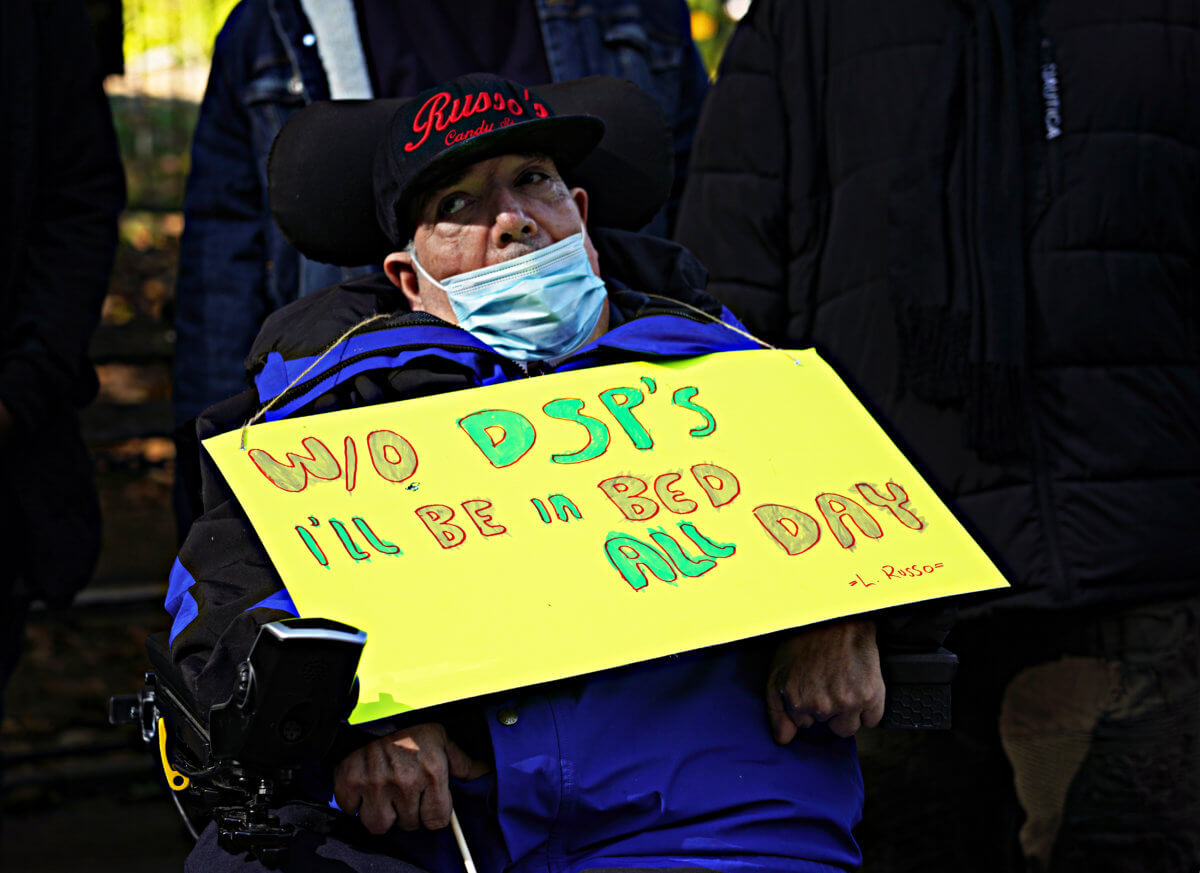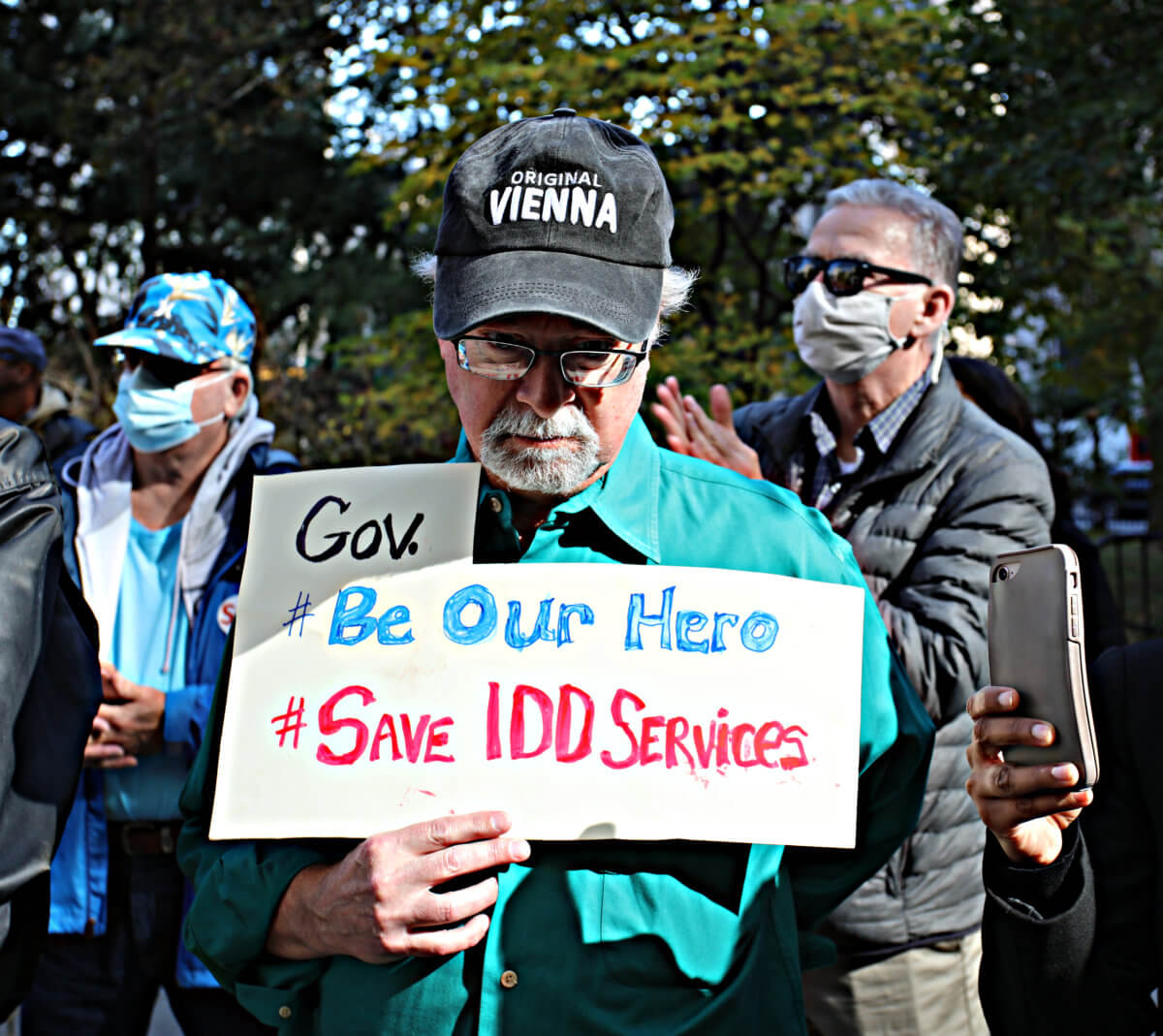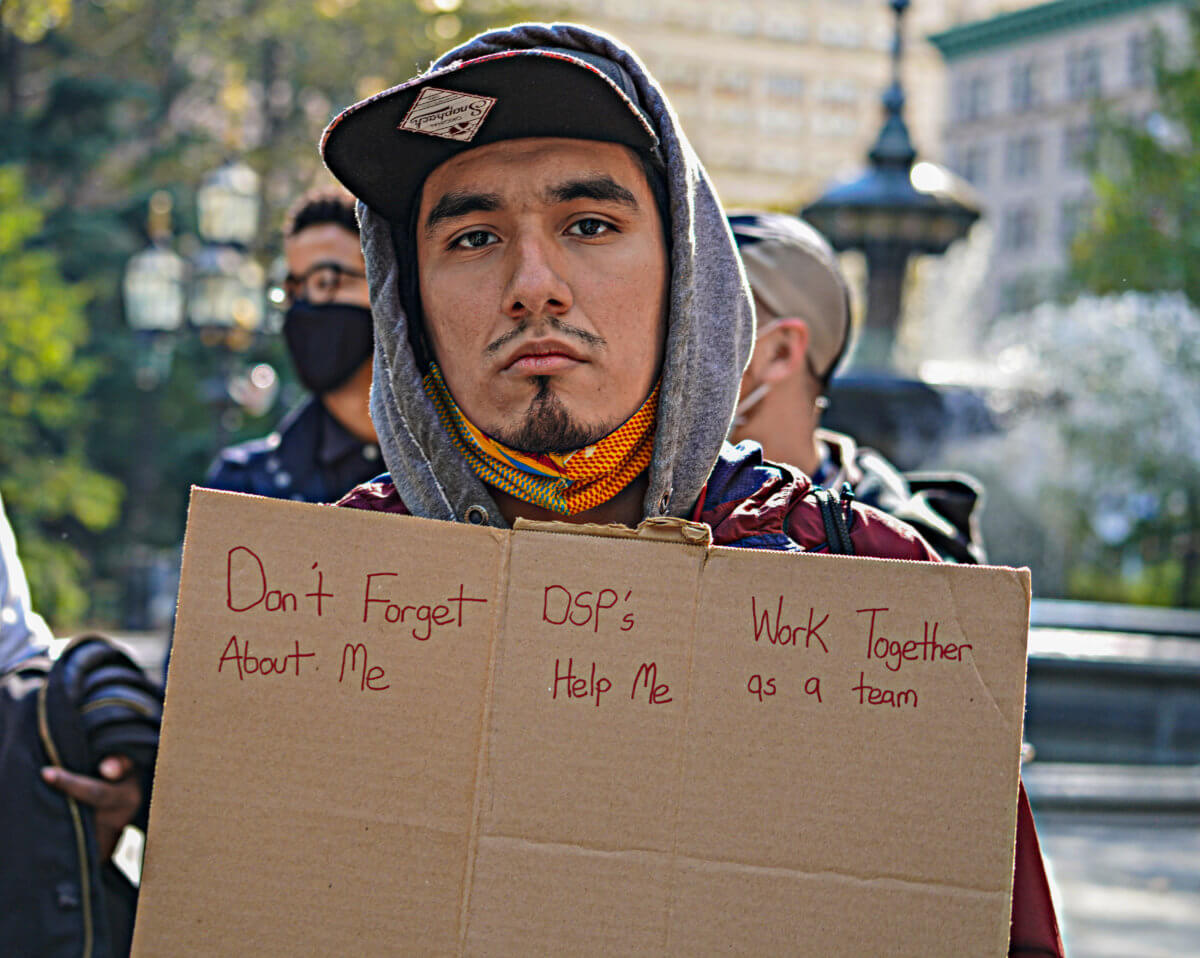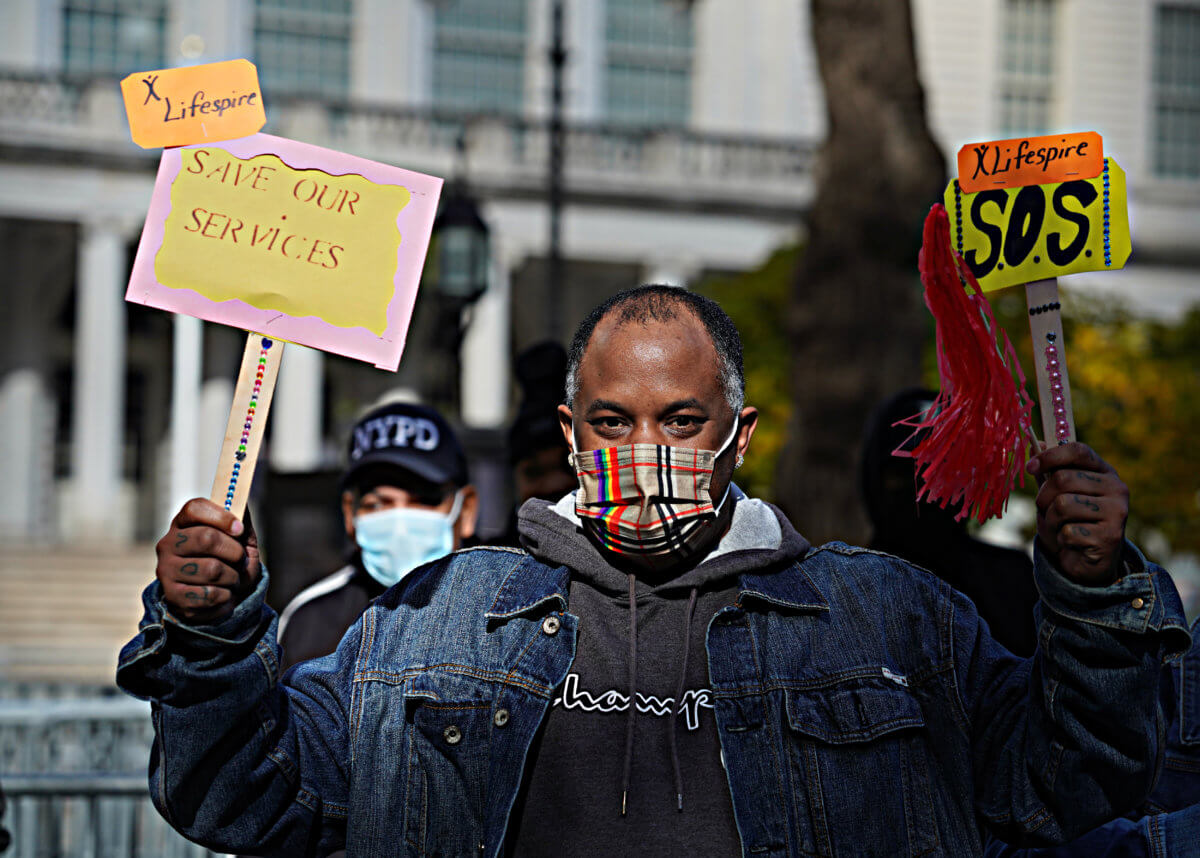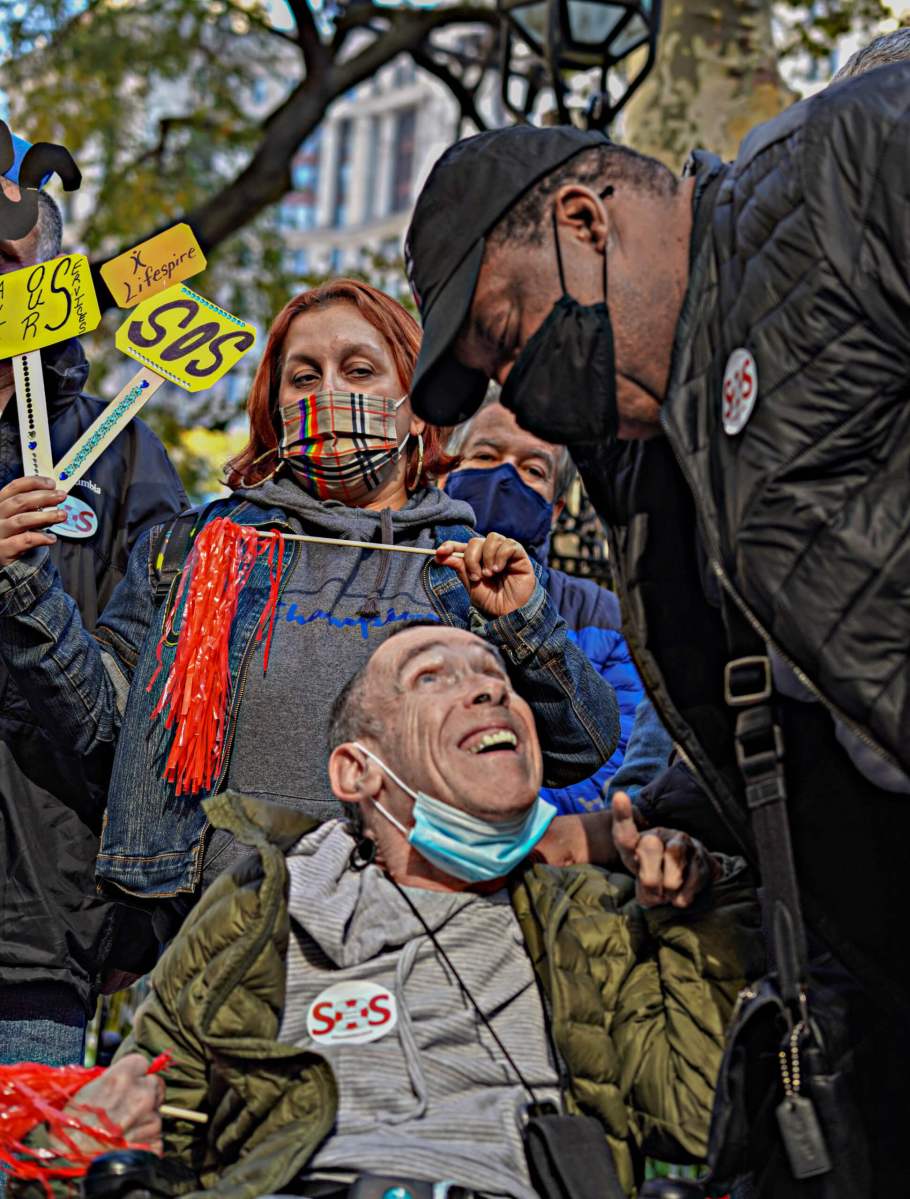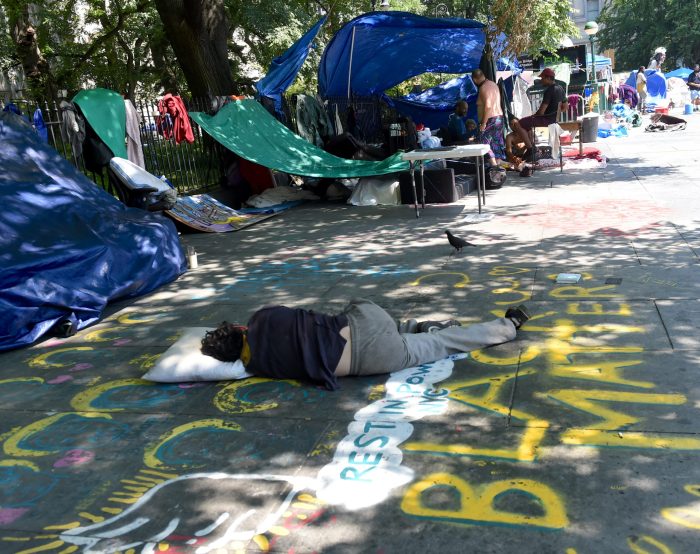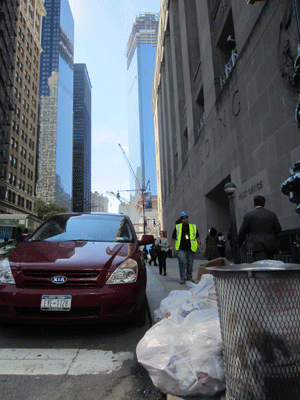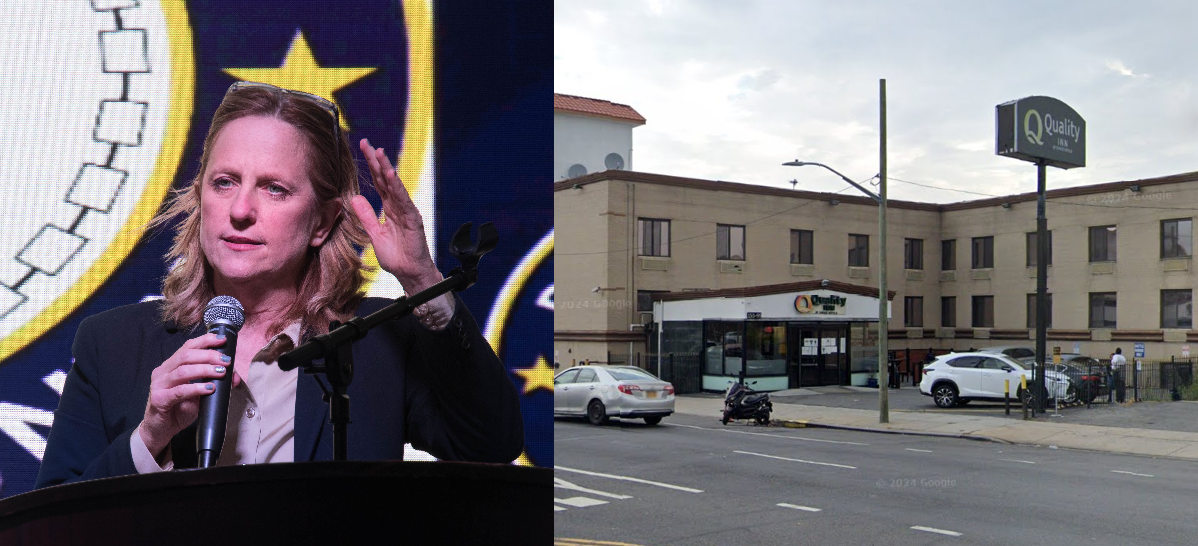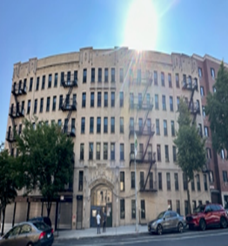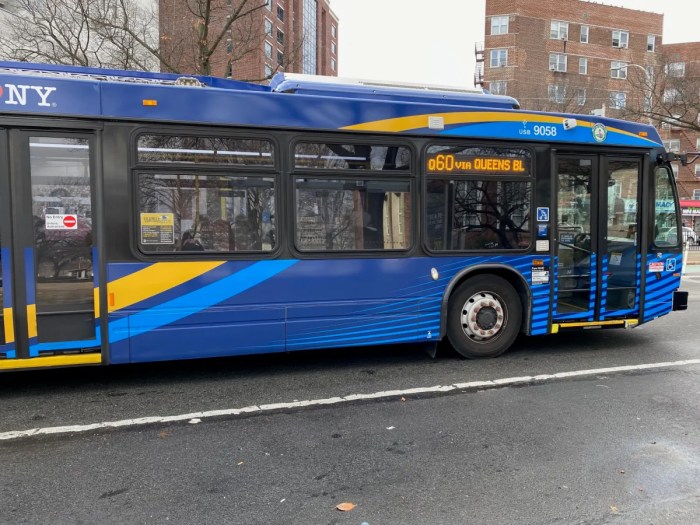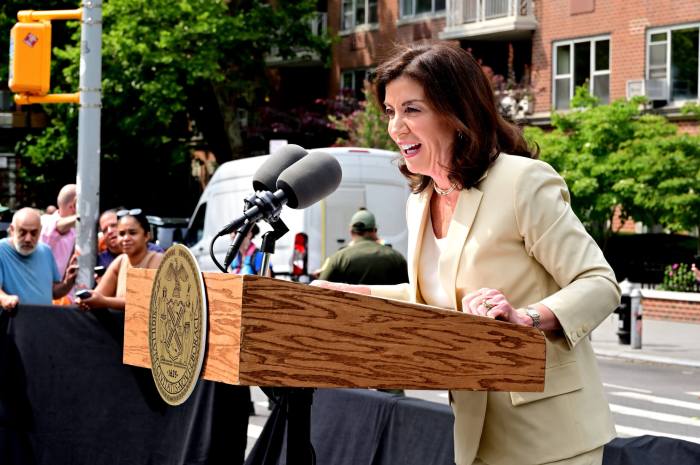Caregivers and those whom they provide life-saving care flooded into City Hall Park on Tuesday demanding higher wages and investment in the Direct Support Professional (DSP) workforce.
Close to 100 individuals lugging protest signs filled up the Lower Manhattan greenspace on Nov. 9. Whether they were wheelchair-bound patients or members of the caregiving workforce, they all bellowed the same chant: “Care not Cuts!”
Organized by New York Disability Advocates and others, the rally aimed to show legislators the desperate need to raise the wages of DSPs, who according to those in attendance are facing dire financial straits resulting from limited wages.
The organizations which provide services to the physically and developmentally disabled are also straining because they’re unable to offer competitive wages to other businesses, leading to a worker shortage that endangers the people for whom they are entrusted to care.
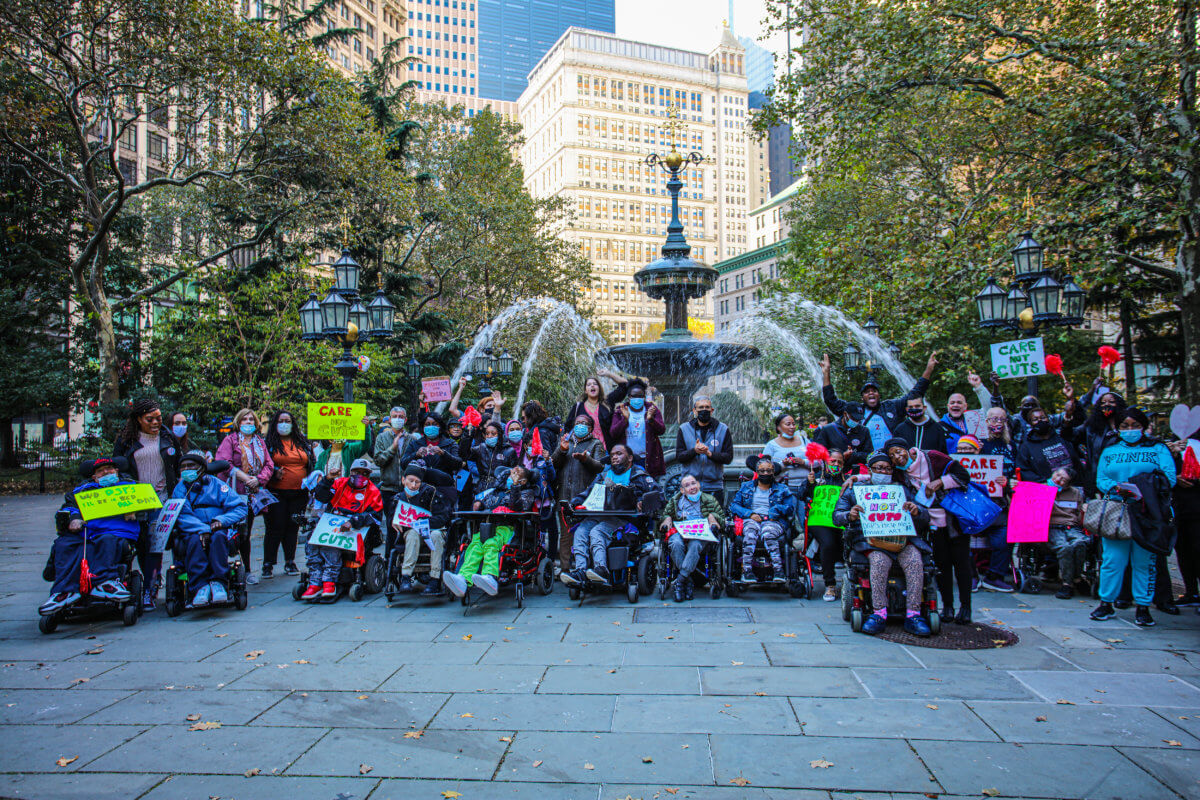
“We’ve always had turnover in our field because this job is just not for everybody and that’s fine as long as we get people applying for the job trying it out. Right now we’re not even getting resumes. One in four jobs is unfilled. And people are not getting services. It’s truly a crisis,” said Winifred Schiff, the associate executive director for legislative affairs at the InterAgency Council of Developmental Disabilities Agencies.
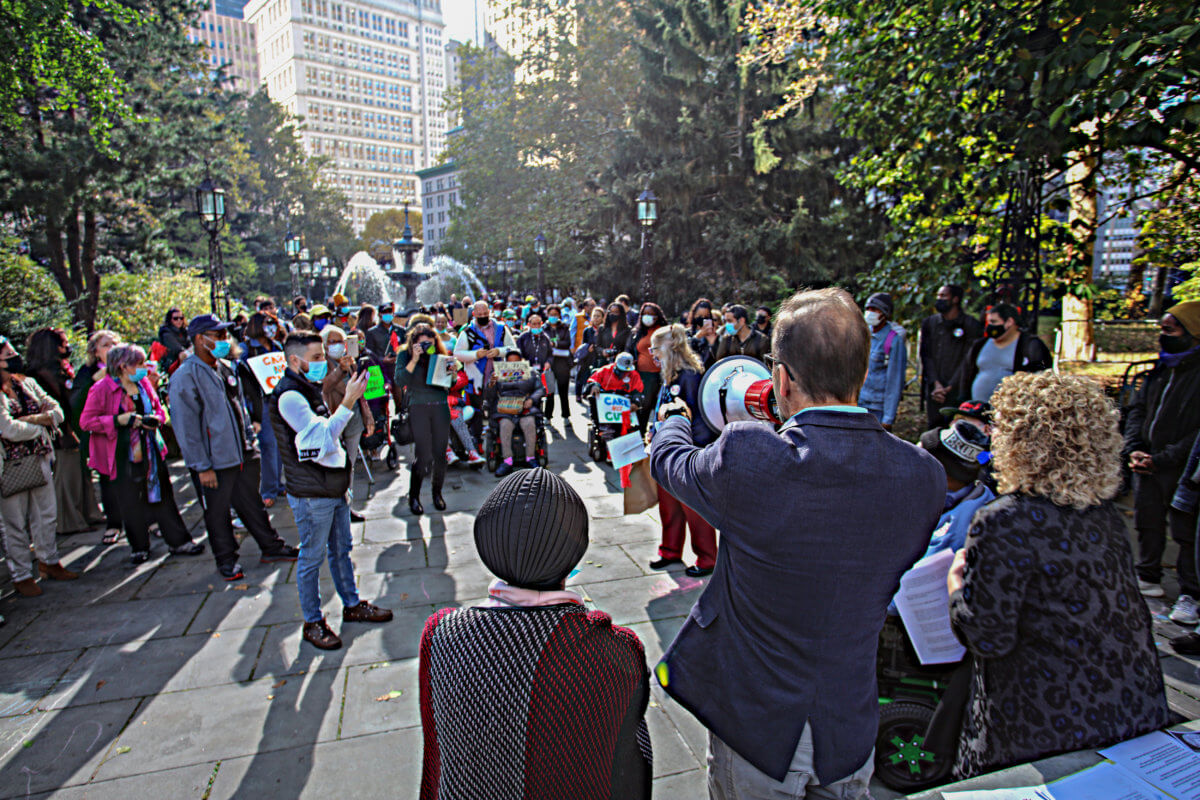
According to speakers at the rally, jobs at fast food restaurants, such as McDonald’s, pays higher earnings than the act of caring for disabled individuals, leading to a mass exodus from the profession.
With a gigantic hole in the field and many in need going without sufficient care, the rally is calling upon Governor Kathy Hochul to help increase funding.
“We have a new partner in Albany, Governor Hochul, who we hope will work with us,” Brooklyn Assemblymember Jo Anne Simon said. “[Former] Governor [Andrew] Cuomo didn’t like that program and he would not budge on that. So our message to Governor Hochul is: this was left out last year, it needs to be put in.”
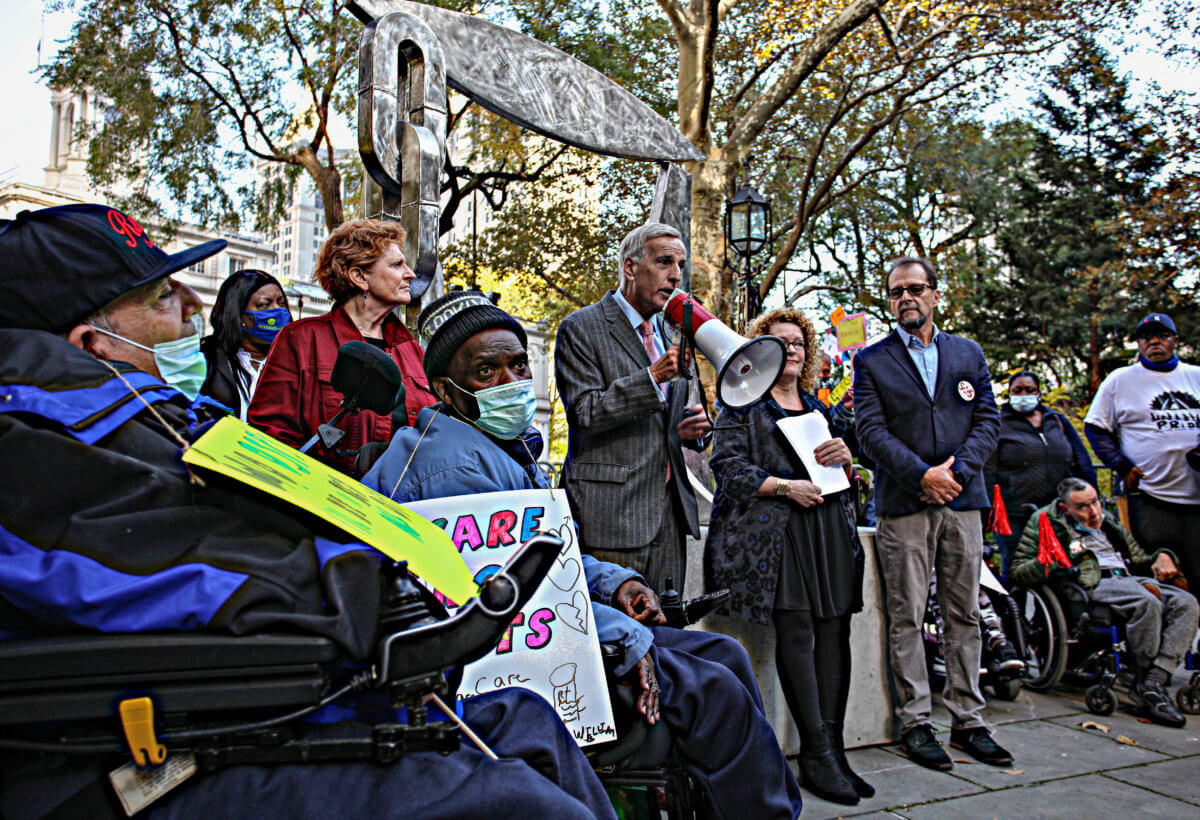
The workers and politicians supporting the cause cried out for change, and the men and women who are directly impacted by these cuts also joined in the fight. Several individuals with disabilities took up the megaphone and voiced their desire to see improvements made. For them their caregivers are not simply serving a profession, they become akin to family members.
“They are the best workers and we don’t want to lose them,” said Steven McCoy, an individual with a disability.
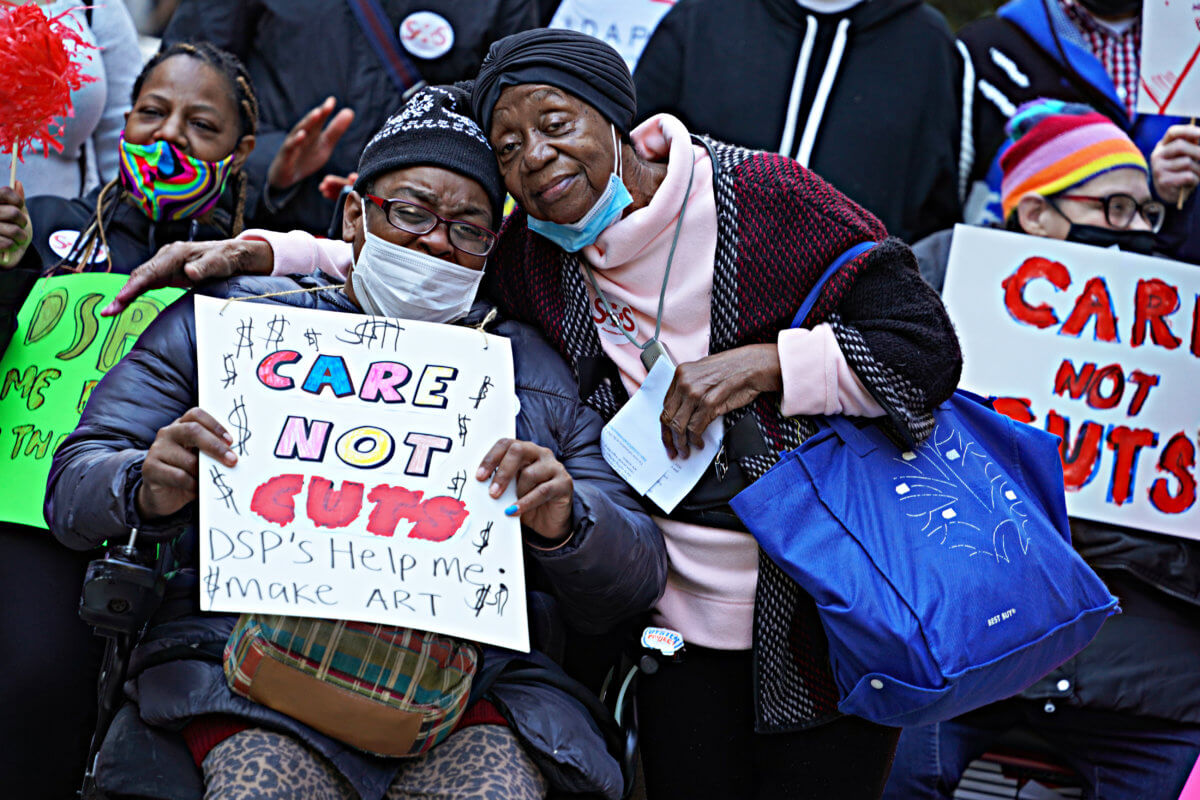
The name of Willowbrook State School was also invoked to remind onlookers the horrors that can occur when adequate care is not provided.
Willowbrook State School became a symbol of infamy in the 1970s when journalists exposed squalid living conditions for residents unable to care for themselves. Several wheelchair bound members of the rally yelled, “I was there!” when Willowbrook was mentioned at Tuesday’s rally.
In hopes of ensuring nothing of that nature occurs again, organizers asked concerned citizens to write letters to the governor with the request to increase Direct Support Professional funding.
“The direct care workers have very tough jobs, and they’re really doing God’s work, and they’re not being compensated for it,” Queens Assemblyman David Weprin said.
In response to a request for comment, Hochul’s office connected amNewYork Metro with the state Office for People with Developmental Disabilities (OPWDD). A spokesperson with the state agency indicated that the state boosted wages for its direct care work force several times in recent years, most recently with 2% increases in January and April 2020. In the current budget, the state also provided nonprofit service providers with a 1% cost of living adjustment.
“We recognize that our direct care workforce is the backbone of a strong service delivery system, which is why New York State has made substantial and ongoing investments in wage increases for our direct care workforce over the past several years,” the OPWDD spokesperson said in a statement. “OPWDD has an additional opportunity to make investments in its workforce through the one-time American Rescue Plan funding and are currently awaiting approval from the federal Centers for Medicare and Medicaid Services on our proposed spending plan.”
The agency spokesperson noted that all service providers “are responsible for taking the overall payment they receive and balancing it across their organization – providers set the compensation levels of their employees, not” the state.
